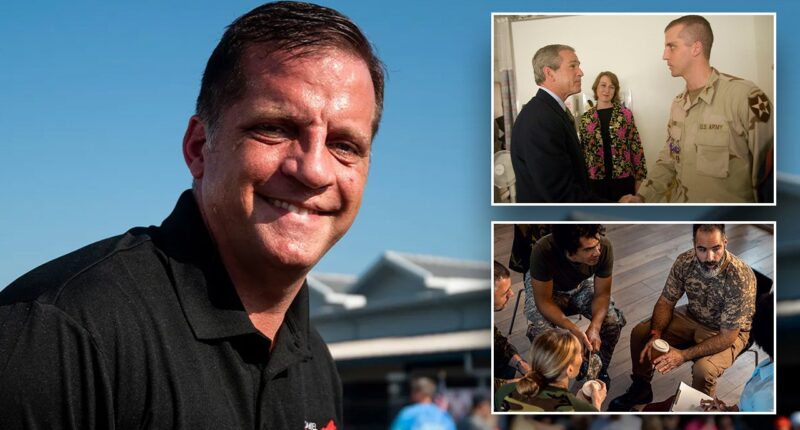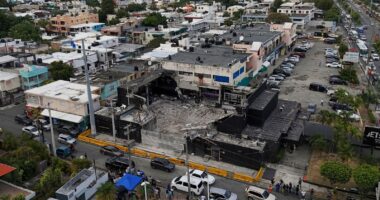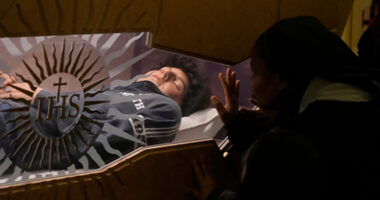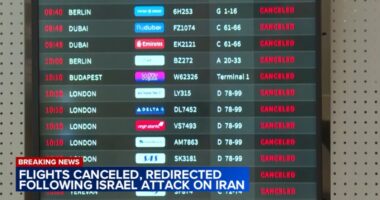Assisting veterans in dealing with the challenges of returning to civilian life, Retired U.S. Army Lt. Col. Daniel Gade, a former wounded soldier, has dedicated his career to supporting fellow servicemen both in the classroom and beyond. Today, he focuses on helping veterans navigate the difficult transition back to normalcy, particularly during times of darkness that may lead to suicidal thoughts.
The 2024 annual report on National Veteran Suicide Prevention by the Department of Veterans Affairs (VA) disclosed the stark reality of suicide rates among U.S. adults in 2022, indicating a total of 47,891 suicides, translating to an average of over 131 daily. Tragically, this figure encompassed 17.6 veteran suicides per day, highlighting the pressing need for intervention.
Gade, the recipient of two Purple Hearts, now contributes his expertise as a senior advisor at America’s Warrior Partnership (AWP). This organization is dedicated to collaborating with communities to prevent veteran suicide and supporting them in developing strategies to care for their veteran populations.
Through academic research with Duke University and other institutions, along with state and local agencies, AWP found that the veteran suicide rate is much higher than what is reported.
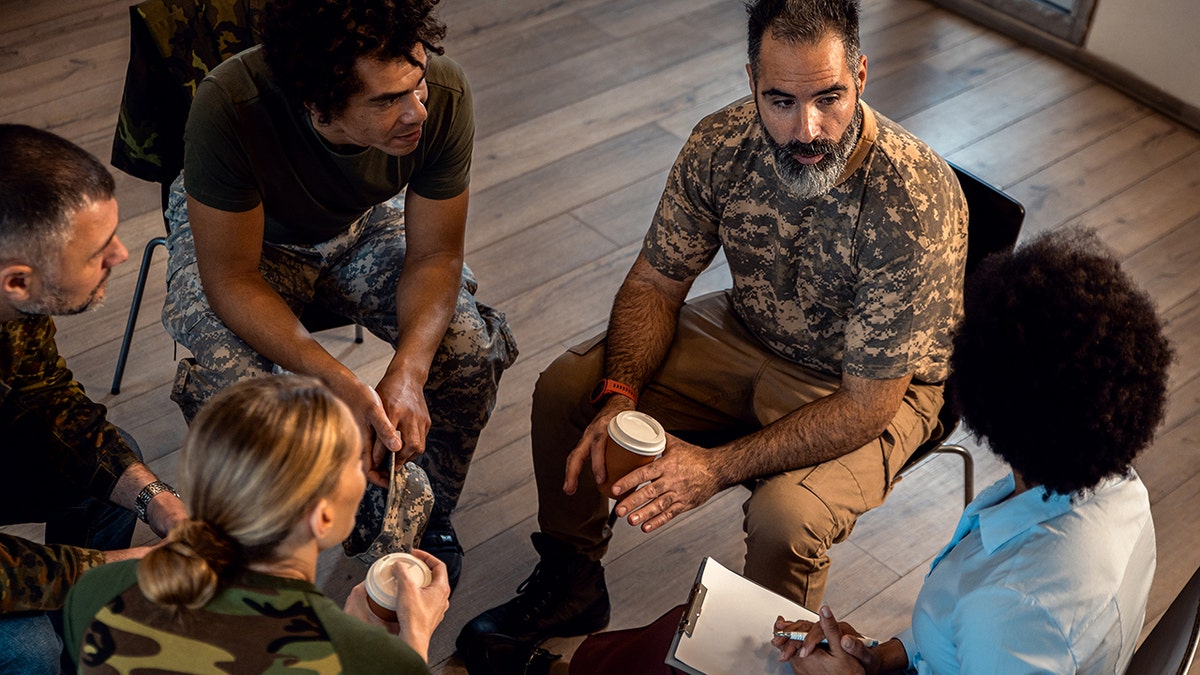
Veterans talk during a PTSD support group. (Getty Images)
While the VA reports a veteran suicide rate of about 17%, AWP found through Operation Deep Dive that the rate is almost double that.
Gade said the difference came down to unreported suicides. For example, there may be a 25-year-old veteran who crashes a vehicle at midnight, but it is not known why he crashed the car. The coroner may just write the cause of death as a single-vehicle accident, but a deeper dive by Operation Deep Dive may look into the person’s life. That same investigation may find the veteran was despairing, had just gone through a divorce or something along those lines.
Another example where Operation Deep Dive may help is if someone has an overdose of a prescription medication prescribed by the VA. The coroner has to determine if it is accidental or suicide, and by doing a deep dive, the organization is finding that the deaths are more likely than not to have been self-harm or accidental self-harm, rather than just pure accidents.
“That’s where the difference comes — it’s expanding our definition of unnatural death to include these others,” Gade said. “And then you realize, oh, man, a whole lot of these are suicides and not just single-vehicle accidents.”
“Every suicide is tragic, but every suicide, you know, suicide is a disease of despair,” he added. “What America’s Warrior Partnership is doing is really trying to get at the roots of that and defeat suicide before it comes into somebody’s life.”
